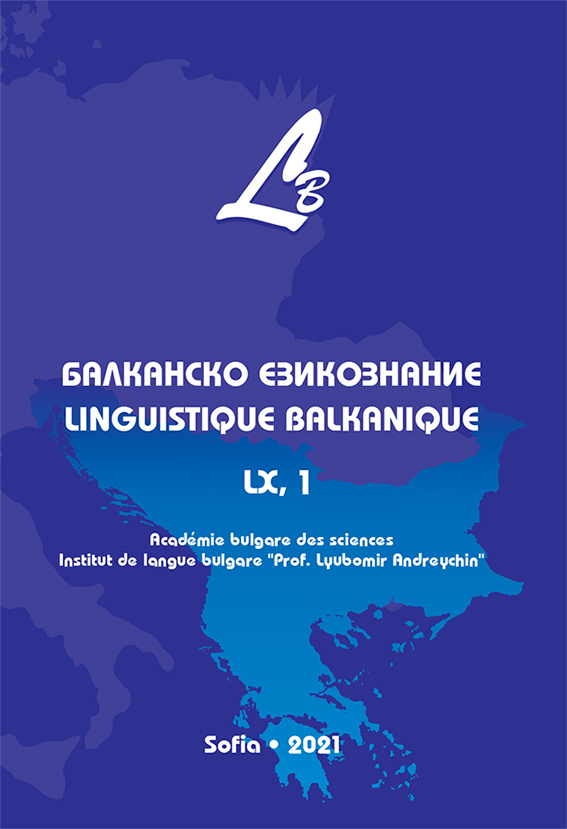К ЭТИМОЛОГИИ НЕКОТОРЫХ СЛАВЯНСКИХ ОЙКОНИМОВ АЛБАНИИ
ON THE ETYMOLOGY OF SOME SLAVIC OIKONYMS FROM ALBANIA
Author(s): Maxim A. YuyukinSubject(s): Language studies, Language and Literature Studies, Theoretical Linguistics, Morphology, Lexis, Semantics, Historical Linguistics, Comparative Linguistics, South Slavic Languages, Philology
Published by: Институт за български език „Проф. Любомир Андрейчин“, Българска академия на науките
Keywords: Slavic place names in Albania; Old Bulgarian language; oikonym; etymology; reconstruction
Summary/Abstract: This article deals with some oikonyms of Slavic origin on the territory of Albania, mostly in the etymological aspect. They are located in the eastern part of the country, especially in the districts of Elbasan, Berat and Korça. Most of the place names are derived from personal names (Konjazmaniz, Mbjeshovё, Orenjё, Skavicё, Tёrzhnjevё, Uznovё, Zilehova) or from collective inhabitants’ names which are of anthroponymical origin (Bezmisht, Bodar, Dohoshisht, Trepsenisht, Ziçisht); some of them have common names as their stems (Brenogё, Gizavesh, Muzhёnckё, Rashnapojё). From the word-formative point of view, both the morphological names with the suffixes -ov-/-ev- (Mbjeshovё, Tёrzhnjevё, Uznovё, Zilehova), -j- (Muzhёnckё, Orenjё), -ьcь (Gizavesh, Konjazmaniz), -oka (Brenogё), -ьsk- (Kozjaveçko) and the lexico-semantic formations from collective inhabitants’ names with the suffixes -itji (Bezmisht, Dohoshisht, Trepsenisht, Ziçisht) and -i (Bodar) are represented. Different reflexes of the jers indicate the different chronology of the names’ adaptation by the Albanian language. Some motivating stems (*Dox-oš-, *Kon(ę, ’a)sъmanъ) are not otherwise attested in Bulgarian and South Slavic languages as a whole.
Journal: Балканско езикознание / Linguistique balkanique
- Issue Year: 60/2021
- Issue No: 1
- Page Range: 27-39
- Page Count: 13
- Language: Russian
- Content File-PDF

